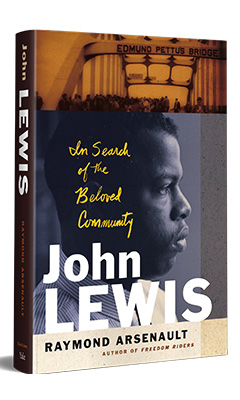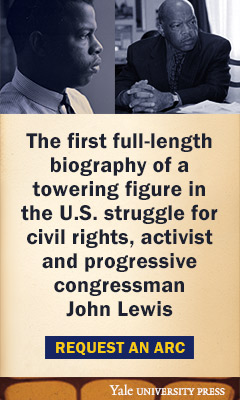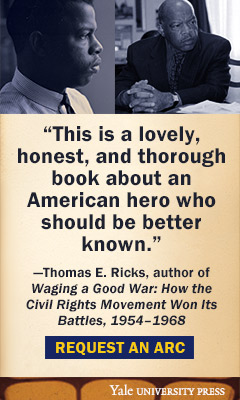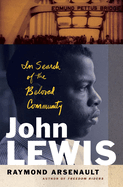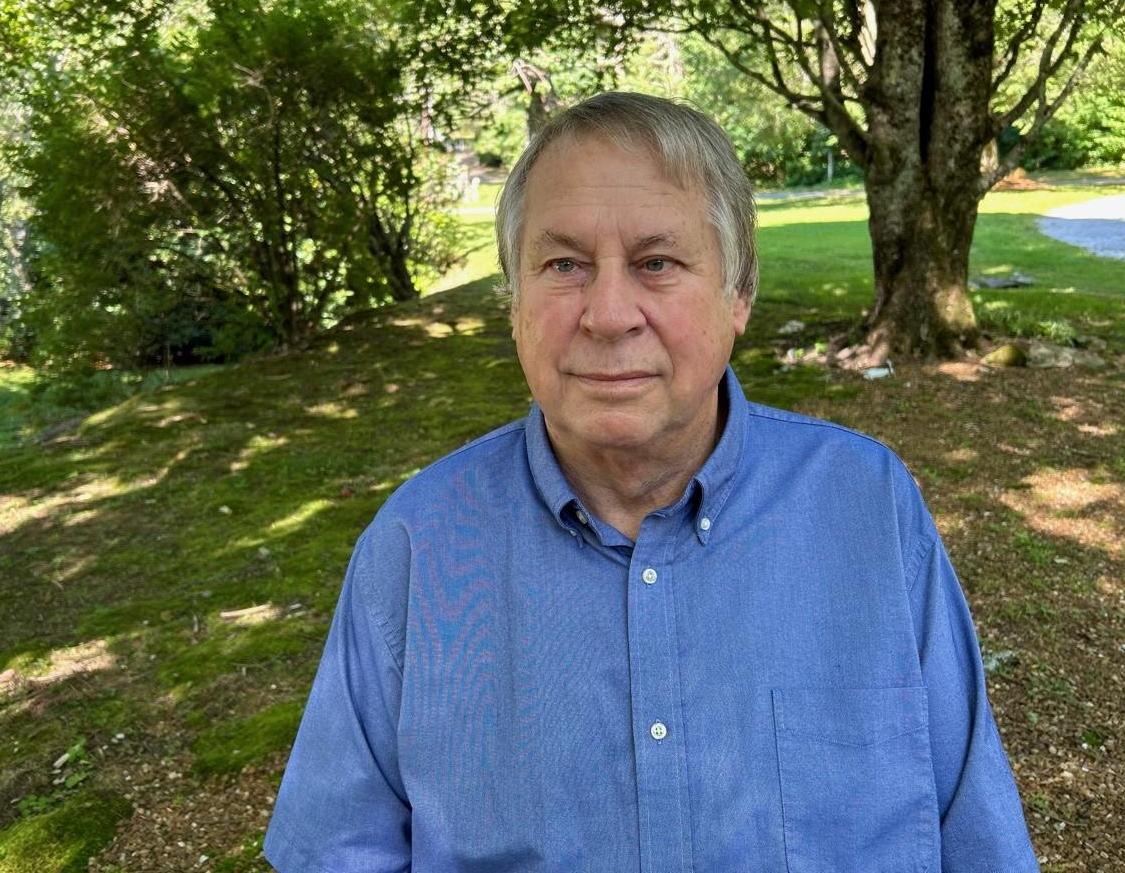John Lewis: In Search of the Beloved Community
by Raymond Arsenault
Commemorating a revered civil rights hero of our era, John Lewis: In Search of the Beloved Community by Raymond Arsenault captures with remarkable clarity the true essence of a humble, gentle leader widely considered during his time in Congress to be "the moral compass of our nation," in the words of Senator Elizabeth Warren. This first comprehensive biography of the U.S. Representative from Georgia offers, through vivid details of his historic victories and setbacks as a freedom fighter, a thorough and intimate understanding of John Lewis's interior journey, his strong sense of mission, and the personal influences that guided his enduring commitment to the nonviolent movement for change advocated by Mahatma Gandhi and Martin Luther King, Jr.
Arsenault (Freedom Riders; The Sound of Freedom), a scholar of Southern history and the civil rights movement, draws on interviews with Lewis, whom he first met in 2000, as well as conversations with his family and contemporaries, newspaper articles, oral histories, and the writings of Lewis and his "nonviolent warrior" counterparts. The author crafts a richly textured, action-driven saga of a cerebral young man born in 1940 in Troy, Ala.; his extraordinary journey from the cotton fields of his state's Black Belt to the frontlines of the civil rights movement; and his exemplary leadership in Washington on voting rights legislation.
At the core of Arsenault's absorbing narrative is Lewis's unceasing search for the "Beloved Community" of his hopes and aspirations. This social and moral ideal was first introduced to an impressionable young Lewis by King and by a professor named James Lawson during his time as a student at the American Baptist Theology Seminary in Nashville, Tenn. It was this pursuit of a human community based on love that drove Lewis to a life of morality-based activism and nonviolent action for the promotion of civil and human rights. He believed that we are each imbued with a divine spark of the Creator, a tremendous source of power that connects us to one another and to the universe, and which we can use in our personal lives to change our individual condition as well as deploy as a "lifeline of spiritual strength to change a nation."
From this powerful sacred belief grew his compassion for neighbors, friends and even his most ardent enemies. Arsenault shares a poignant scene he witnessed firsthand to illustrate the depth of Lewis's capacity for forgiveness: Lewis's startling grace in accepting the late-in-life apology of Elwin Wilson, the former Ku Klux Klan member who attacked and seriously injured Lewis 50 years earlier during the Freedom Rides of 1961. In 2011, when Lewis and Wilson appeared as guests on The Oprah Winfrey Show, Wilson was fearful and nervous. Reaching out to comfort him, Lewis gently held Wilson's right hand and declared to everyone, "He's my brother"--a powerful, living embodiment of his beloved community ideals.
The third installment in the Black Lives series published by Yale University Press, John Lewis invites readers to consider the man through his interactions with those closest to him in spirit. One of these was Dr. Bernard Lafayette, Jr., Lewis's lifelong friend and former roommate at the Nashville seminary; as students, they participated in the 1959 lunch counter sit-ins in downtown Nashville, and the historic Freedom Rides on buses across the South, experiencing arrests, beatings, and bullying at the hands of white supremacists. Another was King himself, who praised Lewis's bravery and liked to call him "the boy from Troy."
Throughout this illuminating biography, readers will find revealing insights into Lewis's relationships with figures such as Robert Kennedy and President Jimmy Carter, highlighting his reputation as a man adept at practical politics and the art of compromise in the areas that mattered most to him: social and economic equality, the political empowerment of the nation's most vulnerable citizens, and broad access to quality health care, to name a few. On the international stage, Lewis saw no bright line between domestic and foreign affairs, and therefore adopted an "internationalist conception" of the civil rights movement, participating in anti-apartheid protests outside the South African embassy in Washington, urging President Ronald Reagan toward a nuclear disarmament treaty with the Soviet Union, and supporting United Nations humanitarian initiatives in Kenya and Somalia.
Lewis's own voice shines throughout Arsenault's energetic narrative, his "quiet shyness" balanced by his soaring oration during his chairmanship of the Student Nonviolent Coordinating Committee. Having obeyed discriminatory rules throughout his youth, which told him he couldn't use the library, drink at the fountain, or eat in a restaurant, Lewis's exhilaration in finally defying those rules by making "good trouble" renders John Lewis a provocative, encouraging read for those who are curious to learn how, despite the many emotional scars, injuries and arrests he suffered at the hands of white supremacists, Lewis's essential spirit remained unbroken. Three years before his death in 2020, Lewis counseled his fellow defenders of democracy thus: "Do not get lost in a sea of despair. Be hopeful, be optimistic. Our struggle is not the struggle of a day, or month, or a year, it is the struggle of a lifetime." His example, founded on a deep spirituality and belief in the human potential for moral improvement, is one that subsequent generations can gain strength and courage from as they develop their own aspirations for a world that rises to the ideals of Lewis's "Beloved Community." --Shahina Piyarali



